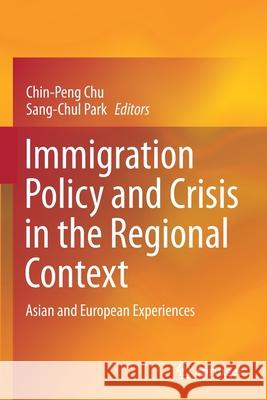Immigration Policy and Crisis in the Regional Context: Asian and European Experiences » książka
topmenu
Immigration Policy and Crisis in the Regional Context: Asian and European Experiences
ISBN-13: 9789813368255 / Angielski / Miękka / 2022 / 236 str.
Immigration Policy and Crisis in the Regional Context: Asian and European Experiences
ISBN-13: 9789813368255 / Angielski / Miękka / 2022 / 236 str.
cena 483,04
(netto: 460,04 VAT: 5%)
Najniższa cena z 30 dni: 462,63
(netto: 460,04 VAT: 5%)
Najniższa cena z 30 dni: 462,63
Termin realizacji zamówienia:
ok. 22 dni roboczych.
ok. 22 dni roboczych.
Darmowa dostawa!
This book compares the immigration policies of EU states and Asian countries—Germany, Poland, Estonia, Taiwan, China, South Korea, Japan, Vietnam,- and Thailand—analyses the policy strengths and weaknesses of various political actors in the regions and explores what can be learned from the experiences of different states.
In the recent decades, immigration policy has become a hot topic due to globalization. EU has faced challenges in immigration since the refugee crisis in 2015 when over a million migrants and refugees crossed into Europe. In Asia, immigration issue has become more complicated as the economic ties among Asian countries have grown significantly in recent years. With contributions by professors, experts and scholars from various countries across Europe and Asia, the book provides both in-depth analyses and broad perspectives on the topic, making it a valuable read for academics and policymakers alike.











